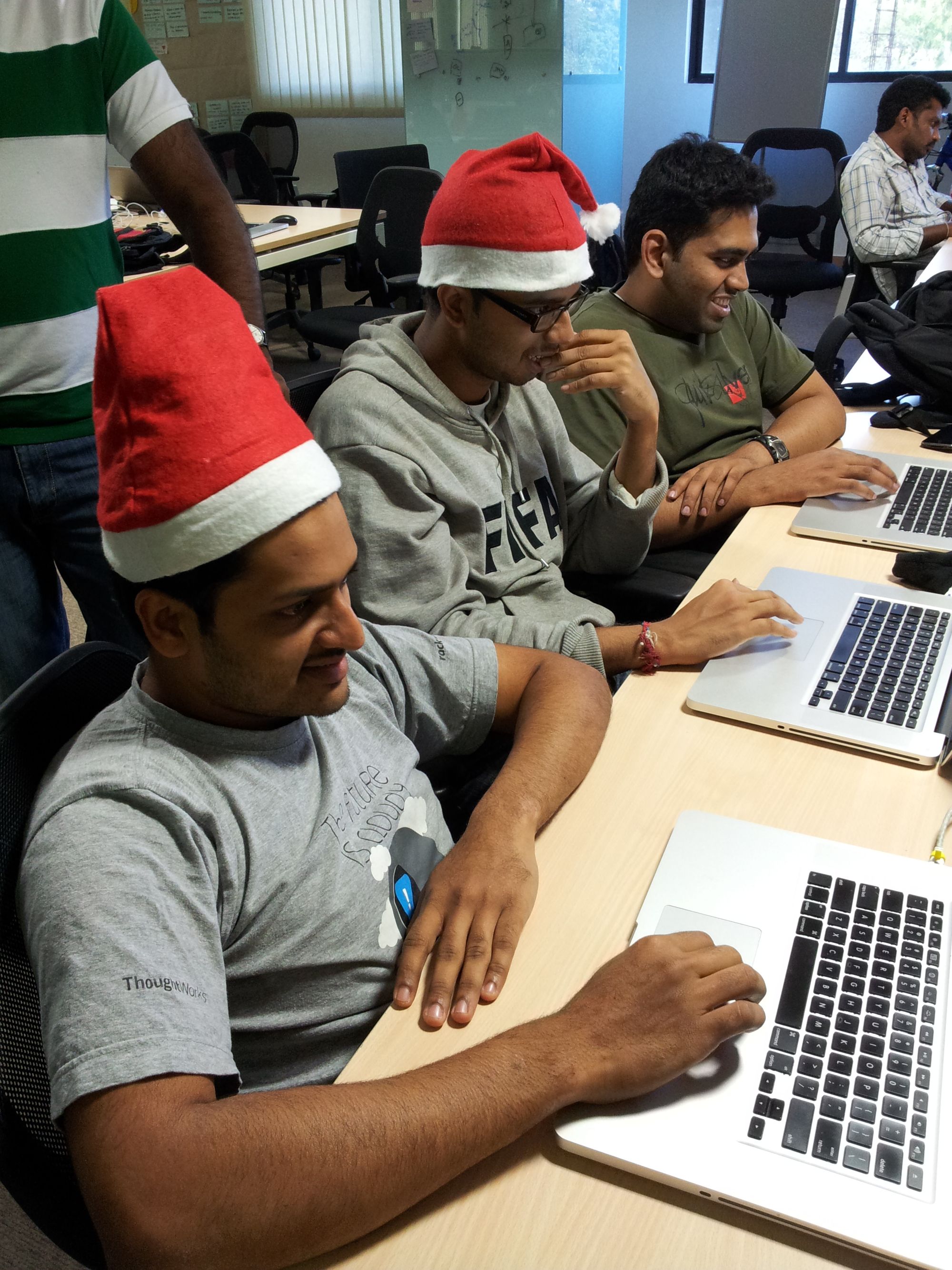What is organisational culture?
Understanding what org. culture means by deconstructing & examining its key elements.

“I’ve joined ThoughtWorks because of its culture!”
“Once a ThoughtWorker, always a ThoughtWorker!”
“Our culture is one of the biggest reasons that I love being a part of ThoughtWorks.”
If you know a ThoughtWorker, you will likely hear one or all of these things from them at some point!
It’s common knowledge that people care about the culture of the organisation they join, especially as they mature in their careers. And many stay or leave because of it. But the word culture is so all encompassing that it can be hard to express what it really means, as we realised in our past 2 years of trying to articulate ThoughtWorks culture more sharply.
Prefer listening to reading? You can listen to this article on our podcast.
If you search on the web for the definition of “organisational culture”, you will find several definitions, ranging from complicated and jargony, to over-simplified buzz words. Experts in the field of Organisational Development (OD) have been fascinated with org. culture dynamics, and since decades been publishing models & frameworks that can help organisations build or evolve their cultures. From Schein, to Hofstede to Grant, the constructs might be many, but some elements remain common in these models.
As we’ve worked with org culture more deeply over the past years, we’ve come to describe it in this way:
Organisational culture is a system of shared meaning held by the members of the organisation, that has been developed over time. Simply put, it is what the members consider right or normal.
Shared meaning is derived from a combination of beliefs, values & norms held by the organisation. While the definition may seem abstract, in reality, you can sense & experience an organisation’s culture quite easily. Culture is alive in a myriad of ways. Once you know how to spot it, you’d be surprised how much you can tell about a place by mere observation!
Let’s look at some key elements that culture encompasses:
I. Physical Artefacts
This is the most visible and obvious aspect of culture.
Nearly everything that you can see, touch or read in a space, can reflect culture.
Whether it’s a toy dinosaur, a large painting on the wall, a community space, language on the walls / boards or the seating plan of the floor; each of these reflects something about the culture of the place. In ThoughtWorks offices you are likely to see a lot of open space, several spots for community gatherings, team walls with lots of post-its, splashes of colour and food! Lots of food! These things reflect our collaborative culture, but also our strong focus on communities of different kinds.
II. Behaviours & Practices
This element is also quite visible in a culture, but you will need to observe a little more closely to decode culture from these. Every organisation has its traditions & rituals. Annual & monthly events, celebrations, gatherings - all have a certain character to them. Are they casual, conversational & peppered with humor? Or are they orderly, formal & to the point? That will tell you a lot about culture. Teams have their own rituals as well - in ThoughtWorks most teams have rituals focused on feedback & reflection - Feedback Fridays, Speedback Meetings, Team Retros & many more. All of these point to how much we value the pursuit of excellence. The other aspect you should pay attention to is how people behave with each other. What is considered normal?
Here is a picture of what you are likely to see at a ThoughtWorks office: Several teams working on their tables with intense focus, and suddenly one team breaks out in peals of laughter, cackling away so that it fills the whole floor! Instead of getting annoyed or shushing them, the next table begins clapping loudly and in a slow wave all the other tables join, until all you can hear is laughter and applause! Gradually, coughing & gasping from all the cackling, people settle back down into their work. This is a common sight at ThoughtWorks, and it gives you clear clues about the culture! It’s fun, relaxed and people like having a good time. Spontaneity is celebrated, connection & community are a way of life. A deeper look will reveal that collectivism is at the heart of our culture. Boundaries between teams are blurry. A team’s wins or losses belong to everyone, so do their jokes & celebrations!
Just watching how people interact with each other tells you a lot about a place if you pay enough attention.





III. Stories & Legends
We are hardwired for stories. As this article puts it, “we have been telling stories as long as there’s been a language to tell them in. We think in stories, remember in stories, and turn just about everything we experience into a story.”
So it’s natural that stories would be a place to look for clues of culture.
The stories that people tell & cherish in an organisation, hold powerful insights into the values & aspirations of that collective. You can uncover treasure troves of information about culture from them, if you peel the layers just a bit.
For example at ThoughtWorks, you would hear many stories about practical jokes & pranks! Our favourite one is when our founder & chairman Roy was fake arrested by fake police (aka troublemaking ThoughtWorkers), and the chaos that followed ! It’s a hilarious story that we love to tell & love to hear over and over again. It not only tells you that we are unconventional & like having fun, it also helps you see that positional power doesn’t hold much value here.
Martin Fowler is one of our most enduring heroes, so is Rebecca Parsons. Both of these people symbolise competence, courage, innovation & thought leadership for us, amongst many other things. This will tell you that as a collective we deeply value being great at our craft & breaking boundaries.
IV. Values & Beliefs
This is the most invisible & tacit element of culture. But the strongest values & beliefs of an organisation, both said & unsaid, are always reflected in the physical artefacts, practices, behaviours & stories found there. If you want a true understanding of an organisation’s culture, it’s more useful to observe these rather than their stated values.
In the examples you read above, you get a window into the ThoughtWorks values & beliefs. For example, the practices centred around giving and receiving feedback point to the values of Pursuit Of Excellence and Cultivation.
Culture is much more than a concept, or some words on a website! It is alive in everything that exists & happens within the organisation. All you have to do is observe keenly enough!
Sources: We’ve drawn our insights from the work of experts in the field of culture - we recommend reading Edgar Schein’s work if you are keen to understand these ideas more deeply.
Acknowledgements: Priya Kher from Collective Quest has been our partner in this work at ThoughtWorks and has helped us articulate some of our thoughts here. Gurpreet Luthra has helped review this article.




